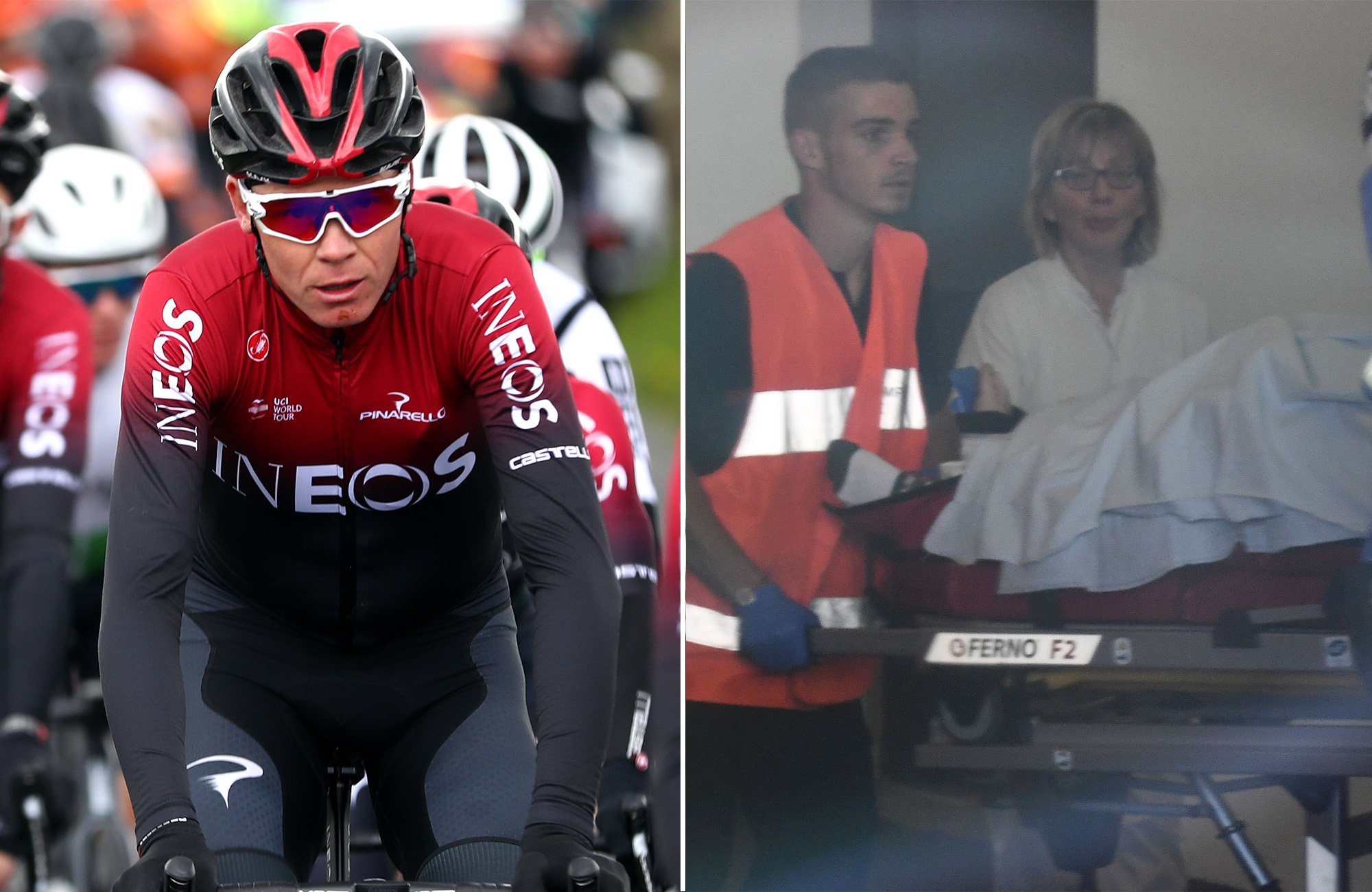Chris Froome lost four pints of blood in Critérium du Dauphiné crash, as surgeon reveals further details
The four-time Tour de France winner has also suffered a fracture to his neck, as further details of his injuries emerge

(Michael Steele/Anne-Christine Poujoulat/Getty)
Chris Froome (Ineos) lost four pints of blood in the aftermath of his crash at the Critérium du Dauphiné, which saw him put in intensive care and sidelined from racing for an expected six months.
Further scans have also revealed Froome suffered additional fractures to his sternum and neck, specifically the C7 vertebra, the lowest vertebra in the neck region.
>>> Vuelta boss wants UCI to hand 2011 title to Chris Froome if Cobo decision upheld
Froome was airlifted to a Saint-Etienne hospital after the crash during a recon of the Dauphiné's stage four time trial and was put in intensive care due to the need to perform complex surgery as well as because of the amount of blood he had lost, "more or less two litres" according to Giorgio Gresta, an orthopaedic surgeon at the Saint-Etienne hospital.
The 34-year-old suffered a "complex open fracture" to his right femur, a complex fracture meaning the break is more serious than a routine fracture, usually including damage to multiple bones, joints, ligaments, and tendons and requiring intensive treatment and rehabilitation. An open fracture means it is a fracture involving an open wound or break in the skin near the site of the broken bone.
Froome underwent six hours of surgery to repair this femur fracture, as well as the elbow and rib fractures he suffered. Gresta has said that Froome was "unlucky with his crash but he was lucky to be close to us," when he crashed, because his hospital is at the "avant-garde" of recuperation techniques, with a number of athletes going to the hospital to recover from injuries.
>>> How bad is a broken femur and what is the normal recovery time?
The latest race content, interviews, features, reviews and expert buying guides, direct to your inbox!
Gresta added that despite the number and seriousness of Froome's injuries that there is "no medical reason" why Froome could not come back "stronger than before".
“He was conscious and reactive, when my colleague, Remi Philippot, and I explained what he had and what we would do,” Gresta said. "He’ll be transferred to a normal care unit as soon as possible. His recovery time depends on his desire to fight back but he seems very motivated. He could just need six months to be back stronger than before."
Froome currently remains in intensive care at the Saint-Etienne hospital but is set to be moved to a rehab facility next week. Froome will therefore miss the 2019 Tour de France, where he was expected to compete for a record-equalling fifth title.
However, in better news for Froome, he could be crowned the winner of the 2011 Vuelta a España after Juan José Cobo has been caught doping. Froome finished second at the 2011 Vuelta and if he is handed the win it would make Froome the first ever British winner of a Grand Tour, and also take his number of Grand Tour victories up to seven.
Jonny was Cycling Weekly's Weekend Editor until 2022.
I like writing offbeat features and eating too much bread when working out on the road at bike races.
Before joining Cycling Weekly I worked at The Tab and I've also written for Vice, Time Out, and worked freelance for The Telegraph (I know, but I needed the money at the time so let me live).
I also worked for ITV Cycling between 2011-2018 on their Tour de France and Vuelta a España coverage. Sometimes I'd be helping the producers make the programme and other times I'd be getting the lunches. Just in case you were wondering - Phil Liggett and Paul Sherwen had the same ham sandwich every day, it was great.